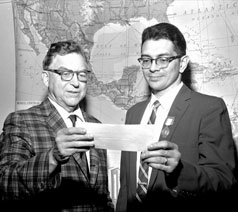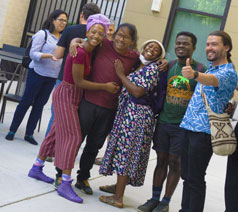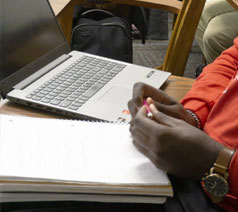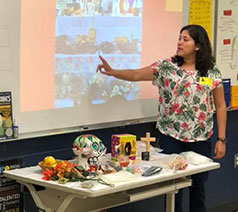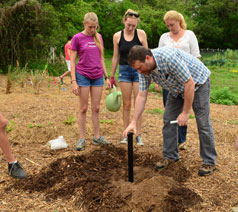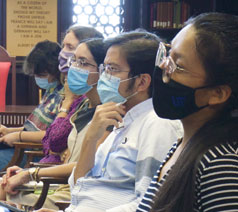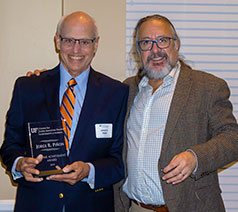The Center for Latin American Studies, in collaboration with the Department of Spanish and Portuguese Studies and the Department of Languages, Literatures and Cultures offers courses and sponsors study abroad programs for a variety of less commonly taught Latin American Languages.
Brazilian Portuguese
Courses in Brazilian Portuguese language and Luso-Brazilian culture may be taken for credit toward an undergraduate certificate or minor in Latin American studies or toward a specialization in Brazilian Studies for the MA degree in Latin American Studies. Several study abroad programs in Brazil are available for semester or summer study. US graduate students with interest in studying Portuguese during the academic year or the summer may apply for a FLAS Fellowship. Libby Ginway and Andrea Ferreira are UF’s Portuguese faculty.
The Center’s Associate Director of Outreach, Mary Risner, founded the online Portuguese Language Journal (PLJ) in 2006. The American Organization of Teachers of Portuguese (AOTP) began to manage and publish the PLJ in 2018 as its annual academic journal, the UF Center for Latin American Studies continues to support the PLJ through USDOE Title VI National Resource Center funding.
Haitian Creole
Courses in beginning and intermediate Haitian Creole language and culture are offered at UF during the academic year. For summer study of Haitian Creole, students should consider enrolling in the Haitian Summer Institute sponsored by the Latin American and Caribbean Center of Florida International University in Miami. US graduate students with interest in studying Haitian Creole during the academic year or the summer may apply for a FLAS Fellowship. Benjamin Hebblethwaite is UF's Assistant Professor of Haitian Creole.
Aymara
Aymara is a less commonly taught indigenous language of the Andes of Bolivia and Peru. It is presently taught outside the Andean region by the University of Pittsburgh and the University of Chicago on a sporadic basis. The Center’s Aymara on the Internet project, funded by a three-year grant from the U.S. Department of Education Title VI program, developed a free, online, self-guided Aymara language and culture learning program. The content of the program, derived from forty years of linguistic work by Dr. M.J. Hardman, represents the equivalent of a four-semester, university level language-learning track. Users are able to access cultural notes, language exercises, and self-administered tests for free. The learning module and learning object database are useful tools for both teaching and research. A unique feature of this project is its tri-lingual emphasis: the program is delivered in English, Spanish, and Aymara, permitting users with no English proficiency to access the material directly.
The target audiences for the program are professional linguists interested in Andean languages, university students of linguistics and indigenous languages of the Andes region, civil servants in government agencies, field workers, the approximately three million speakers of Aymara and related languages in Peru, Bolivia, and Chile, and third-generation descendants who wish to recover the lost language of their ancestors. This project will benefit academic programs and students of linguistics and anthropology in universities around the world without resident Aymara expertise by providing ready-made materials, available in both online and CD format.
Jaqaru and Kawki
A grant from the National Science Foundation is funding work to document the endangered Jaqaru and dying Kawki languages, which are members of the Jaqi family of languages (along with Aymara). Jaqaru is spoken in the Andes Mountains of Peru and in the cities of Lima, Huancayo, Chincha, and Cañete by a few thousand people, while Kawki is spoken by only a few people near Chavin, Cachuy, and Lima, Peru. Drawing upon the work of Dr. M.J. Hardman, this project will transform a corpus of 50 notebooks of texts, audiotapes, digitized photographs and related linguistic data into an accessible, archived linguistic research database. The materials will be archived and linked through two digital archives, the Archive of the Indigenous Languages of Latin America at the University of Texas, Austin, and UF Digital Collections.
Other Latin American Languages
The Consortium of Latin American Studies Programs maintains a comprehensive list of summer programs in less-commonly taught and indigenous Latin American languages offered by universities throughout the United States.

